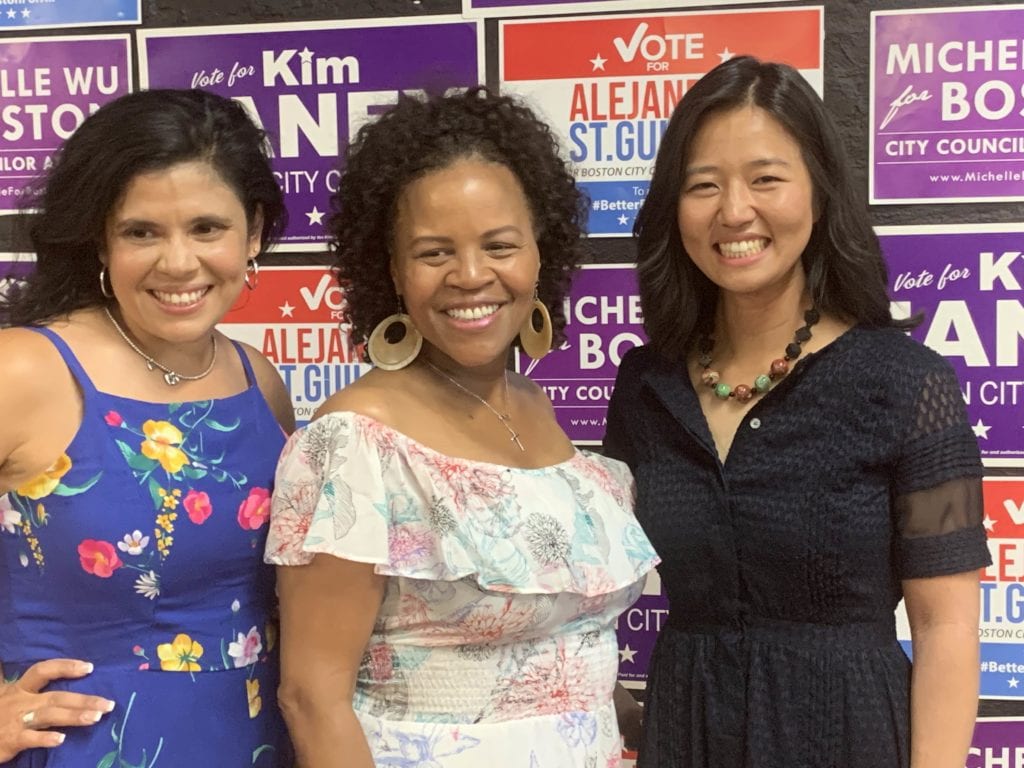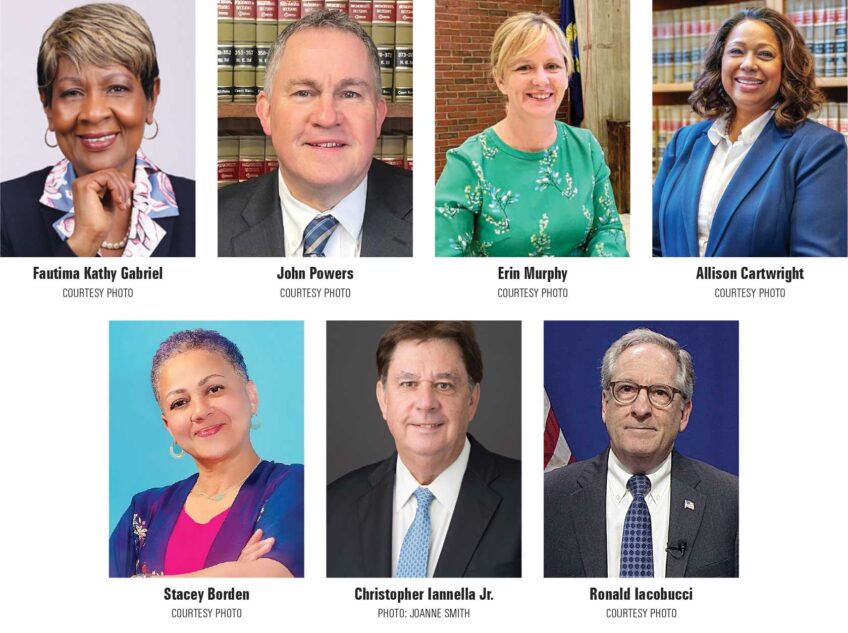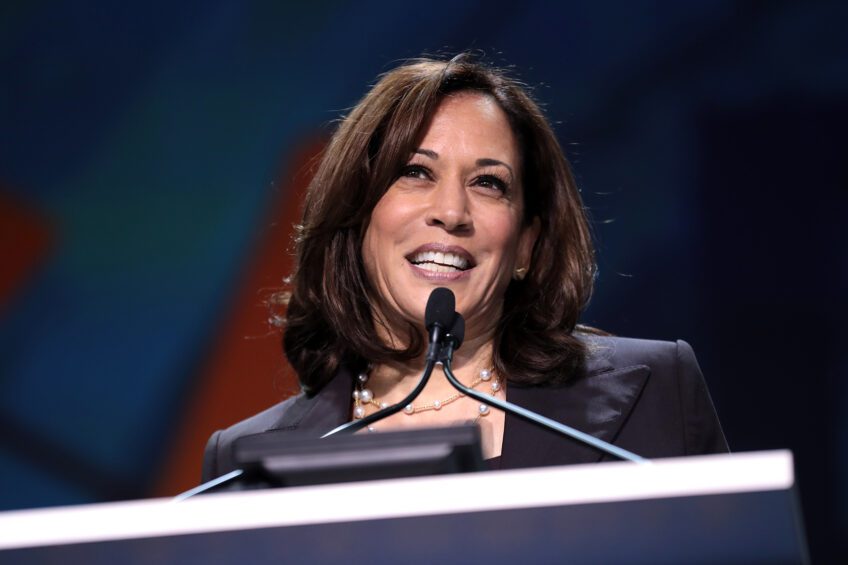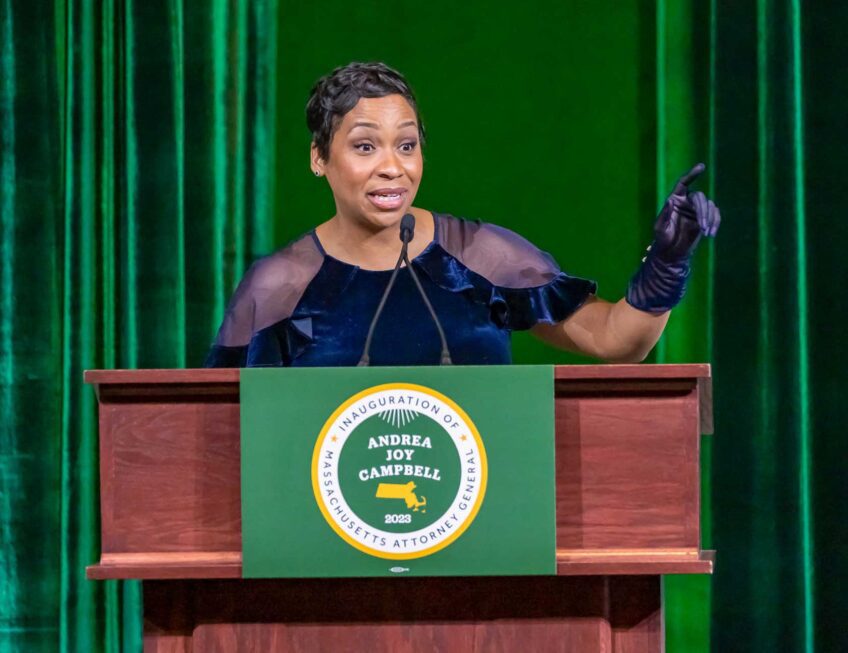An issue-oriented council race
Rent control, ICE, school budget: Voters seek answers from candidates

When at-large City Councilor Michelle Wu teamed up with District 7 Councilor Kim Janey and at-large candidate Alejandra St. Guillen to open a joint campaign office in Dudley Square Saturday, it was the first time in 10 years a slate of candidates has worked together in a local Boston election.
“A campaign office should be about building a movement, about bringing people in, about collaborating, about staying true to the vision,” Wu said, “so that after Election Day, you’re going to have a team ready to go, ready to make it happen.”
Wu’s promise of a unified vision may be a heavy lift, though. In today’s council, the current crop of six councilors of color hold divergent views on a number of issues.
While at-large Councilor Althea Garrison enjoyed support from Janey and District 1 Councilor Lydia Edwards when she proposed that the Council take up rent control, Wu came out against rent control in the 2013 election in which she first won office and would not support it during a June at-large candidate forum hosted by the group JP Progressives. At-large Councilor Anissa Essaibi-George, too, told the group she would not support rent control. St. Guillen told JP Progressives she supports rent control.
During the 2016 state election, District 4 Councilor Andrea Campbell would not support a resolution opposing charter school expansion, while all but one other council member did support it. And while other councilors of color advocated for an increased 2019 Boston Public Schools budget, Campbell cast the sole vote against the school budget, arguing that additional resources weren’t needed.
In a JP Progressives questionnaire, St. Guillen and Wu said they support shutting down the Boston Police Department’s gang database. Essaibi-George did not.
The divergent views of councilors of color comes at a time when many political activists increasingly laser-focused on progressive issues such as housing, criminal justice reform and education and are looking to local government for solutions.
“It’s 2019. We are living, unfortunately, in the era of Trump,” said NAACP Boston Branch President Tanisha Sullivan, who moderated a JP Progressives panel with seven of the at-large candidates. “It is causing people to reflect on who we are as a nation and who we are as a city.”
Heightened concerns about the direction of the country could well be what led to an increase in issue-driven campaigns and grassroots activism in last year’s election. That season saw some long-term officials, including state Rep. Jeffrey Sanchez and U.S. Rep. Michael Capuano, lose their seats to challengers running to their left. It also saw groups like JP Progressives, Progressive West Roxbury/Roslindale and Downtown Progressives — all affiliates of Progressive Massachusetts — flexing their political muscle and helping drive those electoral changes.
“JP Progressives has a bias toward action,” said member Ziba Cranmer. “Knocking on doors is the antidote to money in politics and years of incumbency. The way we balance power is through volunteer energy.”
They’re not the first group to hold a candidate forum this year. In May, Progressive West Roxbury/Roslindale held a District 5 candidate forum. In February, Amplify Latinx and the Haitian American Chamber of Commerce held forums during which candidates spoke about their stands on housing, school closings and other hot-button issues.
Members of those groups are volunteering their time on campaigns and opening their checkbooks to support multiple candidates — but not before they know where the candidates stand.
“People know you can’t take for granted how people vote once elected,” Sullivan said. “There’s a deeper understanding among a broader group of the electorate of the impact elected officials can have on our daily lives.”
New politics, new map
The increased focus on issues stands in stark contrast to the electoral politics of past decades, when race and neighborhood affiliation were the most prominent drivers of voter preference, with issues coming in a distant third. The electoral landscape reflected that reality, with black city councilors relegated to the city’s two majority black districts in Roxbury and Dorchester, Italian Americans representing the Hyde Park-based District 5 and the East Boston/North End District 1 and Irish Americans representing Dorchester, South Boston and West Roxbury and holding all or the majority of the citywide at-large seats.
Voter turnout is shifting, too. Last year in primary balloting, voter turnout in South Boston’s wards 6 and 7 was 20 percent and 22 percent, respectively, while Roxbury voters in Ward 12 turned out at 23 percent. Even as recently as 10 years ago, South Boston voters had turnouts 10 points higher than those in Roxbury. In decades past, the predominantly Irish American and Italian American neighborhoods on the periphery of the city voted in consistently higher numbers than those in the center of the city, giving the electoral map a doughnut shape.
But voter participation and interest among blacks, Latinos, Asians and progressive whites has increased in recent years, and that pattern no longer holds. Immigration and gentrification have further altered the city’s electoral map. Twenty years ago, it would have been unthinkable for a black candidate to beat a white candidate in East Boston and Charlestown. But in 2017, Lydia Edwards did just that, grabbing 52 percent of the vote to Walsh administration official Stephen Passacantilli’s 47 percent, with her strong showing in those two neighborhoods offsetting her loss in the North End portion of District 1.
In 2018, with J.P. Progressives backing Ayanna Pressley’s congressional campaign, Rachael Rollins’ bid for the Suffolk County District Attorney’s office and Nika Elugardo’s bid to unseat Jeffrey Sanchez in the 15th Suffolk District, the two Jamaica Plain wards posted turnout numbers among the highest in the city. Ward 11 had 30 percent turnout — well above the city average of 24 percent. Ward 19 had 40 percent — the highest percentage of any ward in the city.
JP Progressives’ Cranmer said interest in this year’s races is already ramping up. Between in-person attendance and online views, 300 people watched the group’s at-large candidates forums.
“It’s about at the same level of interest as the DA’s race was last year,” she said.
Know your electorate, know your candidates
Michael Flaherty, consistently the top vote getter in the at-large field in the early 2000s, polled well behind Wu and Pressley in the last municipal race in 2017. Flaherty in December said the council should consider some form of rent control, stopping short of endorsing an actual policy, a departure from his opposition to rent control measures during his earlier tenure on the council.
But as for JP Progressives, the group refused to let Flaherty participate in its debates. His 2014 endorsement of Republican Governor Charlie Baker disqualified him from the group’s endorsement process, Cranmer said.
Former District 7 Councilor Tito Jackson said that beyond partisan politics, candidates should think through their stands on issues such as rent control and an elected school committee before appealing to voters.
“Housing for people who make under $250,000 a year is an issue,” he said. “There are issues that are unifying the city. The electorate wants to see solutions, not a simple restatement of the problem.”
For voters, Jackson advises a close read of the candidates’ positions.
“The great part about having a robust field is that there are robust differences in people’s responses to those issues,” he said. “Even though the pool of candidates is large, there’s no place to hide. It’s critical that people put forward what they stand for.”
[An earlier version of this article stated that Essaibi-George is in favor of the police department’s ongoing collaboration with U.S. Immigration and Customs Enforcement. Her actual response to the JP Progressives questionnaire said she is not in favor of BPD sharing information with ICE. Read JP Progressives’ statement on this mistake here. In her initial response to the group’s questionnaire, Essaibi-George did not say she supports Suffolk County District Attorney Rachael Rollins’ memo on not automatically prosecuting a list of 15 misdemeanors. In a subsequent phone conversation with a JP Progressives member, she said she does.]







